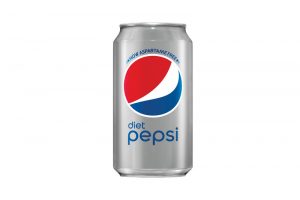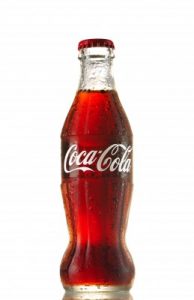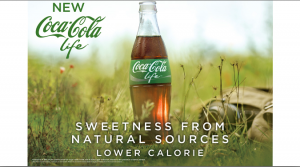
From my book Sweet Poison.
Perhaps the most commonly used nutritive sweetener is high-fructose corn syrup, a sweet product manufactured from cornstarch and containing a high level of fructose,” explains Kyd Brenner, Director of Public Affairs for the Corn Refiners Association in Washington, D.C.
High-Fructose Corn Syrup
High-fructose corn syrup is very close to the composition and calorie content of cane sugar, and the syrup is used as a direct and inexpensive substitute for cane sugar when liquid sweeteners are called for.
Why?
It’s cheaper, and it is used extensively in soft drinks, condiments (like ketchup and salad dressing), jams, jellies, and wine.
An advantage of high-fructose corn syrup is that it “tastes sweeter than refined sugar,” making it a popular ingredient for food manufacturers because it enables them to use less.
Today, sweeteners made from corn are the leaders, racking up over $4.5 billion in annual sales and accounting for over 55% of the sweetener market.
This largely reflects a steady growth of high-fructose corn syrup.
Syrup In Your Cola

It is a misconception that there are up to 12 teaspoons of sugar in a regular cola.
THIS is a very important point.
If you read the labels on sodas, there is rarely actual granulated sugar in the popular carbonated sodas – they use high-fructose corn syrup.
So, there is NO sugar in a regular cola. They sweeten colas with high-fructose corn syrup.
According to the National Soft Drink Association (NSDA), the syrup is easier to blend into beverages than refined sugar.
Have you ever considered how many pounds of sweetener the soft drink industry buys? High-fructose corn syrup costs less than refined sugar, but it is still millions of dollars, if not hundreds of millions of dollars, in savings.

If you drink a cola, drink one made with pure cane sugar and not one that’s made with high-fructose corn syrup.
Read your labels.
Why Fructose Is Bad For You
Research (that I include in Sweet Poison) shows that there may be some nutritional consequences to using corn syrups in any food product, from colas to cereals.
Fructose absorbs differently than other sugars, and it doesn’t register in the body metabolically the same way glucose does. Research also suggests that fructose may alter the magnesium balance in your body.
This, in turn, can accelerate bone loss, according to a USDA study published in 2000 in the Journal of the American College of Nutrition.
In November 2003, a review in the American Journal of Clinical Nutrition examined evidence from multiple studies on high fructose corn syrup.

The researchers concluded that large quantities of fructose from a variety of sources:
- induce insulin resistance;
- impair glucose tolerance;
- produce high levels of insulin;
- boost a dangerous type of fat in the blood;
- cause high blood pressure in animals.
This includes table sugar forms and high-fructose corn syrups.
A “free lunch” and a no-calorie “safe sweetener” just doesn’t exist.
Let me say this again – people are searching for something that just doesn’t exist. The closest thing to a real sugar substitute is pure stevia or natural unrefined sugar from the cane, like Sucanat®.

My grandparents lived to their hundreds consuming sugar-sweetened tea and coffee, they enjoyed candy, and they had a dessert every day of their productive healthy lives.
They were trim, vigorous, remarkable healthy individuals. They also ate very healthy homegrown produce, poultry, eggs, etc. every day.
We need to remember the history of our food and eating. And, try to avoid products made with high-fructose corn syrup.
________________
If you want to learn more about the diet sweeteners, contact me at janethull.com. Remember that you are never alone when you are looking for good health!
Gain access to all of my online programs, ongoing support, monthly Q&A, and more by joining my Private Inner Circle Membership Program. I look forward to supporting you on your journey to alternative health and wellness.
_____________
Disclaimer: This article is for informational purposes only, and is educational in nature. The FDA may not have evaluated some of the statements. This article is not intended to diagnose, treat, cure, or prevent any disease. Please discuss with your own, qualified health care provider before adding supplements or making any changes to your dietary program.
Before taking vitamins, consult your doctor; pre-existing medical conditions or medications you are taking can affect how your body responds to multivitamins.
You have our permission to reprint this article if you attribute us with a live back-link to this article and the youtube links. https://janethull.com/